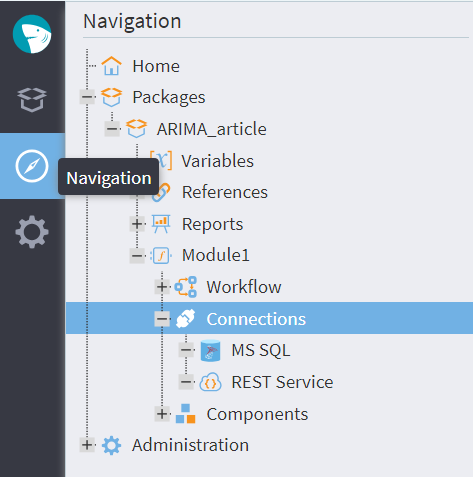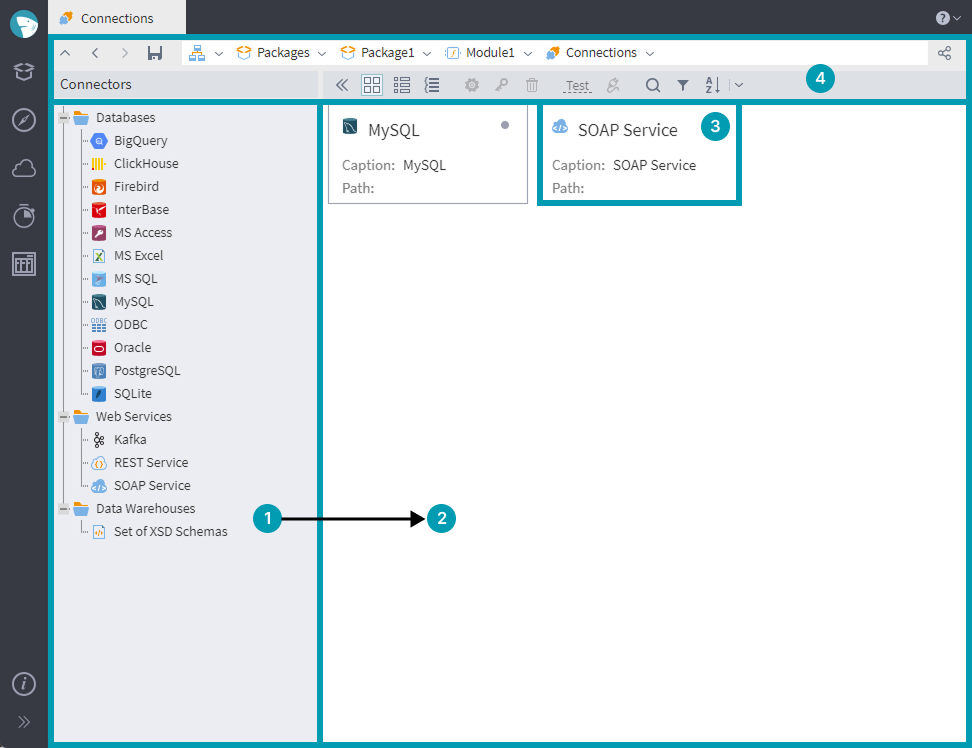Connections
Before using SOAP Service nodes, REST Service nodes, or import/export nodes that connect to business apps, data warehouses, databases, and other external sources, you must first create a data source connection in the package. A connection contains all the necessary parameters to link to a data source, such as login credentials and the source location. You can reuse a connection multiple times within the same package.
Available connections
- Databases:
- Web services:
- Data warehouse:
You can set up a separate list of connections for each module in a package.
To create or edit connections:
- Open the package structure in the navigation bar.
- Select Connections for the relevant module.

This opens the Connections page. A tree of available connection types appears on the left.

To create a new connection, do one of the following:
- Drag the connection type from the tree (1) to the connections area (2).
- Double-click the connection type in the tree.
A new connection (3) appears in the connections area, and the connection parameters dialog opens. After you set the required parameters, you can test the connection.
Managing connections
Use the toolbar, context menus, and hotkeys to manage your connections.
The toolbar (4) contains the following options for managing connections:
— Show connection class tree.
— Hide connection class tree.
— View as large tiles.
— View as a table.
— Group the list by connection type.
— Configure the selected connection.
— Configure visibility.
— Delete the selected connection.
- Test — Test the connection.
— Activate the selected connection.
To navigate through your connections, the following tools are available:
— Search for a connection by name or path.
— Filter connections by group, caption, or path.
or
— Toggles between sorting connections ascending or descending. A Clear sort option is available in the dropdown menu.
The context menu is available for each connection:
Rename connection
Configure connection
Configure visibility
Delete connection
Test connection
Activate connection
Deactivate all
Hotkeys
The following keyboard shortcuts are available:
- F3 — Activate connection
- Shift + F3 — Test connection
- F2 — Rename connection
- Alt + G — Group list
- Ctrl + D — Filter list
- Enter — Configure connection
- Delete — Delete connection
Important Note: To connect to certain data sources, such as databases, you must install the corresponding DBMS client or client libraries. The bitness (32-bit or 64-bit) of the client must match the bitness of the Megaladata application or server.
Example: Connecting a database
Articles in Section:
